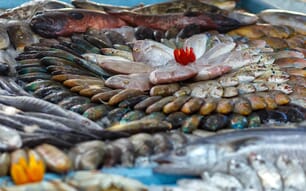This research will especially benefit the livelihoods of small-scale farmers in India, Bangladesh and Malawi.
In this project environmental DNA (eDNA) methods will be applied to help understand the microbiome (assemblages of microbes and pathogens) in fish and shellfish culture ponds, and within the organisms themselves for developing early warning of diseases and for avoiding disease outbreaks in low income countries where food is scarce.
Professor Charles Tyler, of the University of Exeter, who will lead the work, said: "This grant provides a wonderful opportunity for us to combine our molecular skills in Biosciences at Exeter, with the expertise in disease diagnosis, pathology, and eDNA at Cefas, to better understand how the microbiology within culture ponds relates to health status and disease outbreaks in key crop species (shrimp and finfish) in India, Bangladesh and Malawi.
"We will use the data to develop models for predicting the drivers of disease outbreaks that can be applied to allow for measures to reduce or prevent crop losses for farmers."
New research funding was also announced this week for salmon farming in Arctic regions.
The Research Council of Norway’s regional fund Northern Norway awarded NOK 3 million to research the benefits of health feed for salmon farmed in Arctic regions.
“Salmon farming in Finnmark has fish health challenges that are specific to this northernmost region in Norway. Our project will study health feed and its effects on fish health, performance and filet quality on salmon farmed in Finnmark,” said project leader Ragna Heggebø, researcher at EWOS Innovation.
In other news, Norwegian seafood export values continued to soar in 2015. The country recorded a new record of NOK 74.5 billion worth of seafood exports in 2015, eight per cent more than recorded in 2014.
"In a year with trade restrictions in several markets and an import embargo in Russia, the result was better than expected. A weak Norwegian krone, combined with good demand for fresh products in particular, contributed to a new export record for Norwegian seafood," commented Terje E. Martinussen, Managing Director of the Norwegian Seafood Council.




